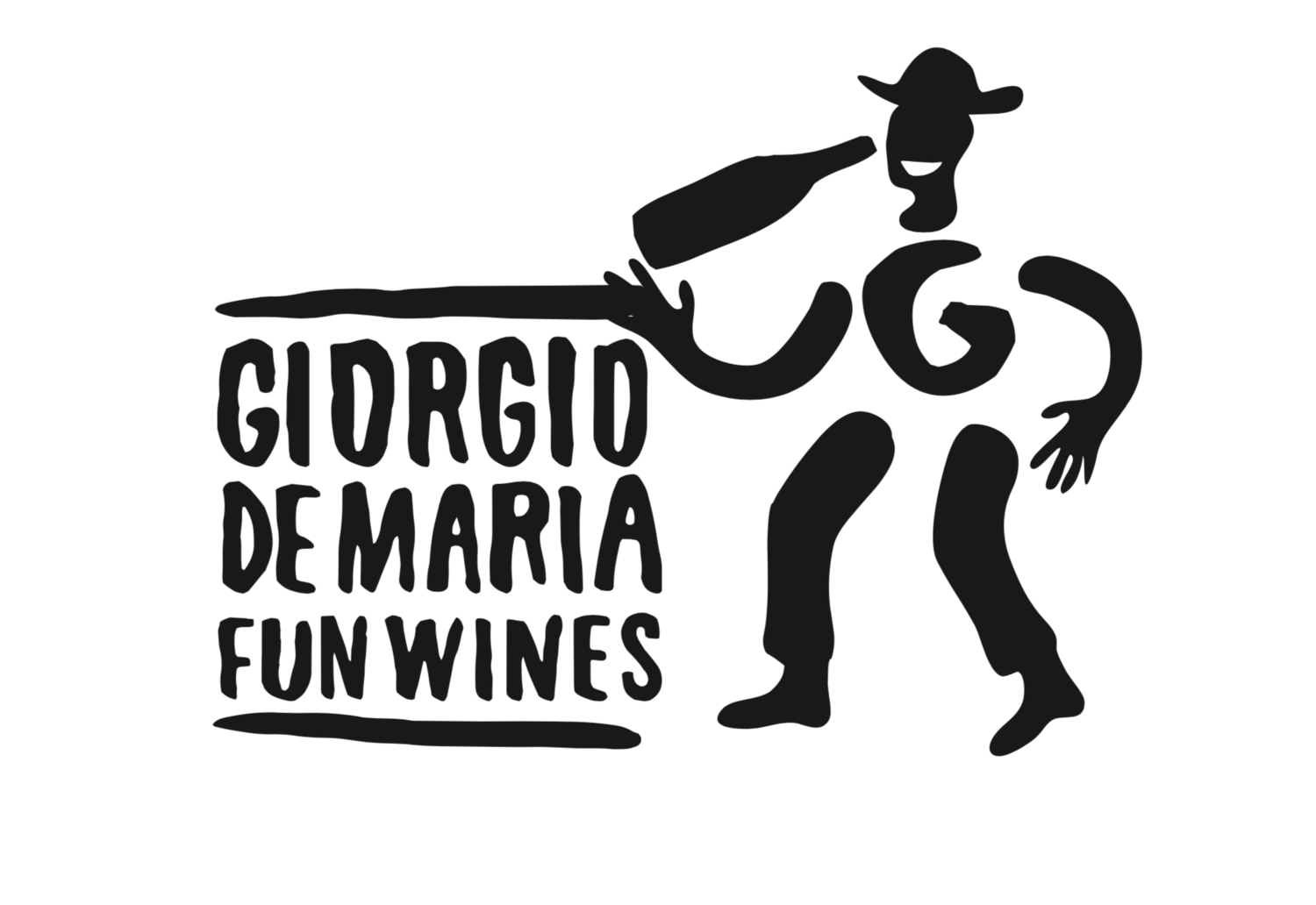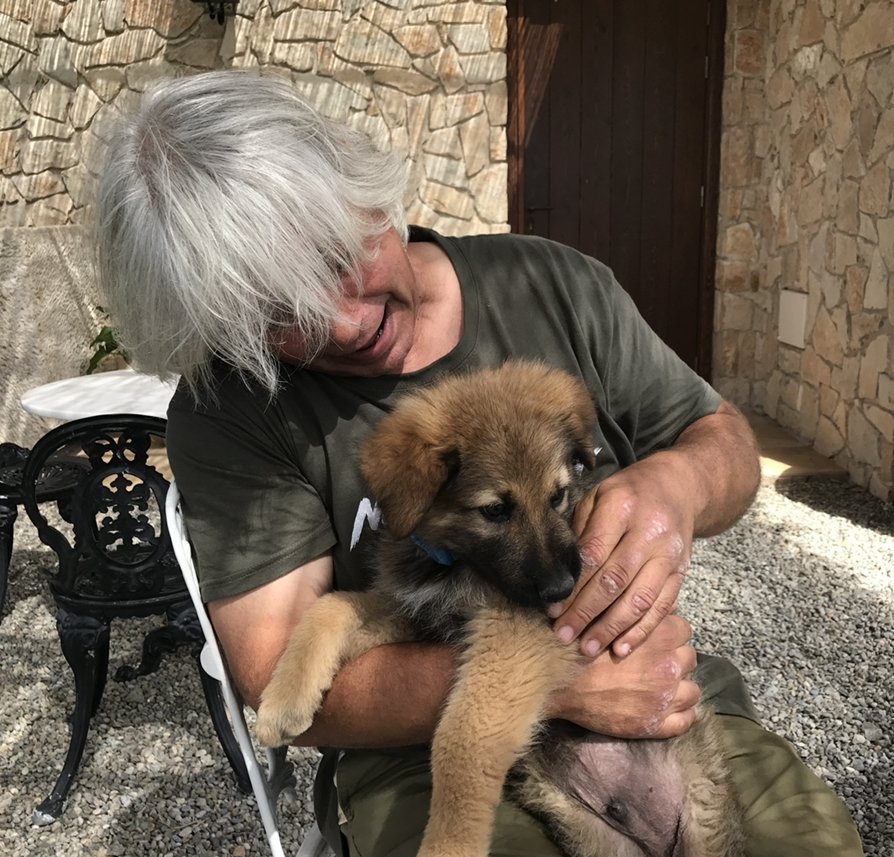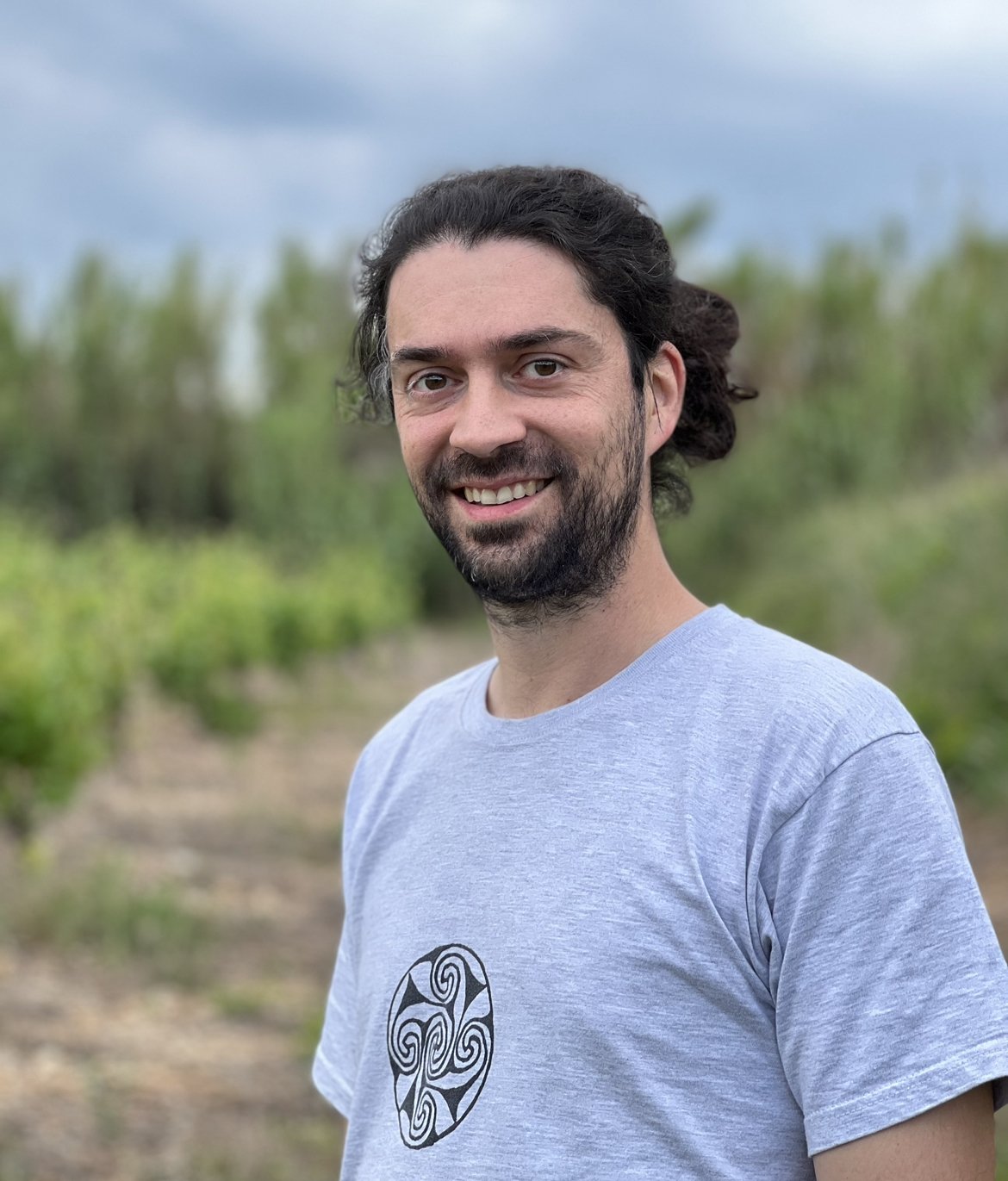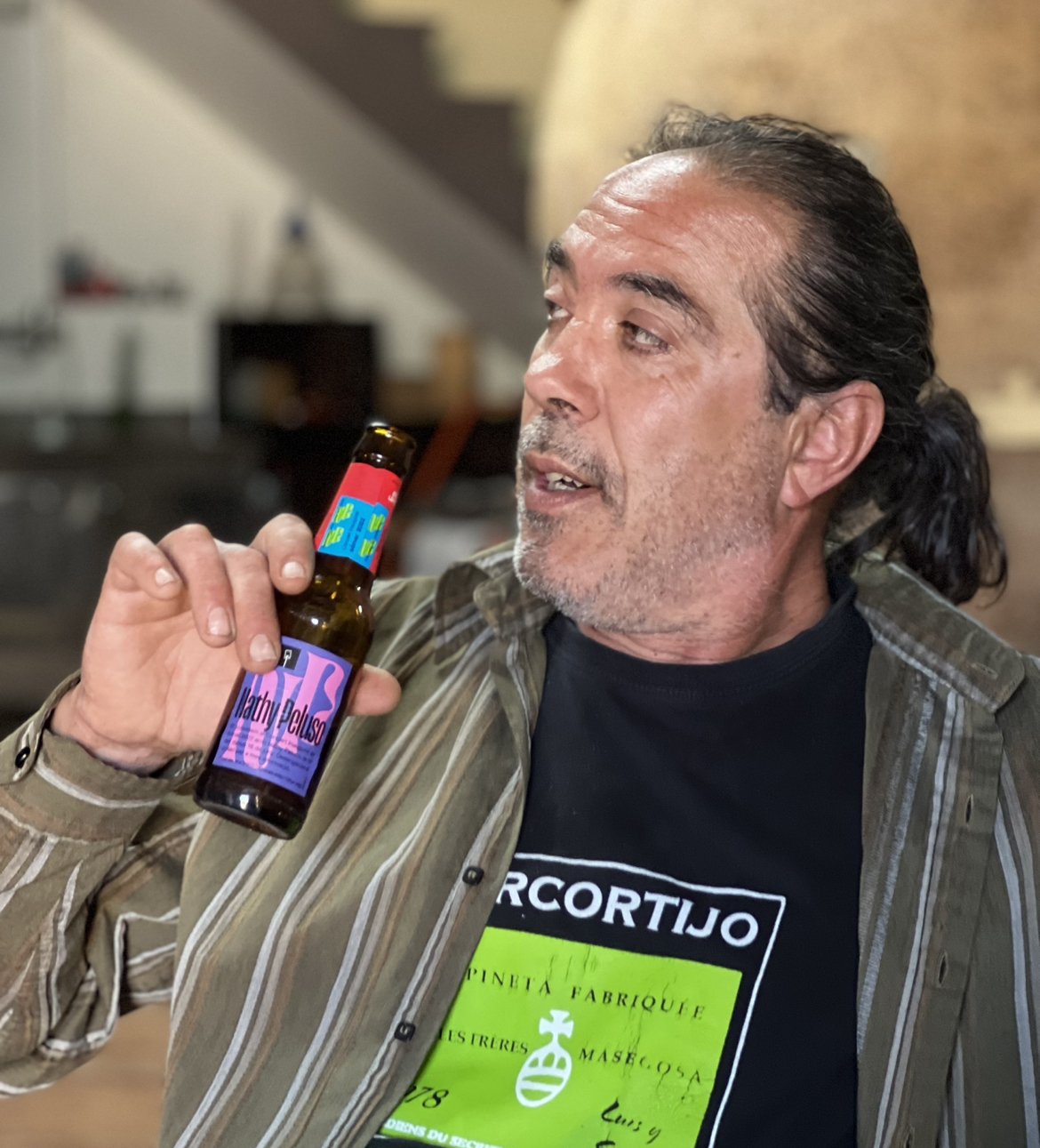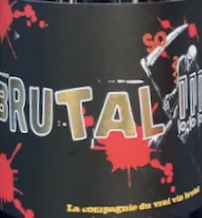Two languages. Four winemakers. Many bottles. One ideal. Brutal!!!
Confusion is to be expected at a shared table lacking a common language. While wine often helps transcend those barriers, on this occasion one word haunted the two Frenchmen at the table ...
We're going back to 2010, when two Catalunyan winemakers, Joan Ramon Escoda (Escoda) and Laureano Serres (Mendall), were visiting the caves of French winemakers, Remi Pujol (Le Temps Fait Tout) and Antony Tortul (La Sorga), in the Languedoc. Four fabulous winemakers with similar philosophies on grape growing and wine making sharing a table, this should have been an afternoon to revel in and yet there was tension in the air. As the Spaniards tasted the Frenchmen's wines (often from barrel) they were heard muttering the same word - “brutal”. While many of the words that passed between the winemakers had not been understood, the repetitiveness of this word made it stand out. So, too, its derogatory meaning.
“For us,” explains Laureano, “it means different, distinctive and beautiful, without the violence associated with the word brutal … [they] thought we did not like them, but it was the opposite!”
It was many (many) drinks before the Frenchies plucked up the courage to question the Spaniards and set the record straight. It was probably a few more wines before these four settled on their own cross-cultural definition of the word. In that wine-fuelled conviviality the word transcended both cultures, all cultures, and an ideal was born. Brutal!!!
“Brutal was born in an innocent way, a perfect marriage of friendship and philosophy,” explains Joan Ramon, “the spirit of Brutal is the memory of a wonderful night with wonderful people.”
The word became the catalyst for their interpretation of an open-source label. “We founded BRUTAL WINES CORPORATION, without paperwork, registers, copyrights, solely as an invention.” continues Laureano. “We wanted a wine that could be experimental, different, with the freedom that every producer desires - but always made with the heart.” The “Brutal Wines Corporation” was created with a label they designed that very night, while also drawing in a fifth to the group, Axel Prufer (albeit the only one with his own version of the label).
With a view to providing freedom from the personality of an established domain, the label was available to be used if the wine fit the ideal: nothing added, nothing taken away in both vineyard and winery was the base stand point (not just for this wine, but for all the wines in the producer’s stable), a small production of something quirky produced conscientiously. The more interpretive goal was that this was to be a wine to start conversations.
“This is not about a grand vin,” explains Antony, “but a place to show something different from the wine we normally make. More interesting, more experimental; it’s for sharing with friends, in the cellars of others; something good of course, but interesting too: a cepage that’s practically disappeared, or a style of wine that almost doesn’t exist anymore.”
This form of education and conversation in a bottle was also an opportunity for these wine makers. “Those experimental, avant guarde wines open the door to other things, they change perspectives.” says Antony. “Once you have your own place you can’t just do a stage here or there. We see what tasting different wines can give to the new generations of wine makers – they’re making great wines after just a few years. For us that took at least a decade!”
Sadly even the most beautiful ideals can blur around the edges, and so it was (and is) with Brutal!!! Some suggest the label was shared to freely, the wines made too liberally (or perhaps not liberally enough) with the ideal somewhat diluted by those who saw it as an opportunity to experiment with zero/zero wines, rather than to extend their already established zero/zero philosophy. Worse still, those who saw its potential as a marketing and money-making exercise, getting their hands on the labels without conversation or consultation, or simply designing their own version to send to market. “This whim of drunken buddies” Antony wrote in 2020 “has been transformed into a sales pitch for mediocre wines, sometimes not even natural ones!”
The Spaniards are, perhaps, a little more resigned to its current fate. “We decided to give it for free,” says Laureano, “thinking the most important thing in this project is the wine not the producer. Of course then some people had different thoughts and took advantage but it is not important, everyone has their own conscience and values.”
Joan Ramon echoes these sentiments: “You know I don’t like control and I am not the police. At the end of the day it’s an issue of conscience. Maybe it’s true that is getting out of control everywhere in the world, but for me the important thing is the power of the word and the story of Brutal. If someone likes to leverage Brutal for commercial reasons, it’s their problem not mine.”
With the very freedom that was at the forefront of their shared label now causing the problems behind it, the Frenchmen have taken a slightly different stance. Over the past year Antony and Remi have created a new gold standard label, an assurance that the wine in the bottle is made with the spirit they intended (it is a literal gold standard, with the word Brutal highlighted in gold). These labels will be available by invitation only, with Remi and Antony starting with the winemakers who were handed the label a decade ago: Mendall, Escoda, Les Temps des Cerises plus the original group of 14 whose wine reflects their ideal including: Naranjuez, Es d’Acqui, Patrick Bouju, Domaine de l’Octavin, Le Vignes de Babass, Partida Creus, Le Coste, Les Bories Jefferies, Damien Bureau, Alain Castex Les Vins du Cabanon, Le Bouc à Trois Pattes and Casa Pardet.
This revision was important for Antony, who had become so disenchanted he had stopped making wines under the label. “It was Remi who said to me, ‘It’s our thing, we’re not going to let these people steal it without doing anything.’ This was never made to be a tool for marketing. It was an idea shared among friends, to rest among friends.” With this new label the pair hope to reignite the project within the parameters they had originally conceived it, dreaming not just of a collection of interesting wines, but maybe even a salon to share them with likeminded producers and friends one day.
It’s interesting to note the total respect given to these different approaches among the group of friends. Is this a neat example for the future of the natural wine world - a place where divergence in opinion can respectfully co-exist? Indeed, this respect may just be necessary (if not fundamental) if the movement is going to hold to its wider ideals with so many jumping on the bandwagon, green-washing their wines (or worse still and out-and-out lying)?
Anarchy, best served with both freedom and accountability?!?
brutal!!!
adjective and noun
1. different, distinctive, beautiful. An ideal, albeit one that may have outgrown its idealism.
2. the celebration of a “fault” when that fault brings its own beauty (see four leaf clover).
3. an analogy for the state of the natural wine world, where beautiful hearts and minds may diverge, but are grounded in common belief and respect (while on the fringe, the less honest push for money and attention is growing).
4. a place where individual conscience is tested. Anarchy, freedom, accountability.
Libby & Giorgio
(NB - It is worth noting, these wines have no connection to the Barcelonian wine bar of the same name which opened in 2013 except, perhaps, stemming from the same understanding of the word!)
